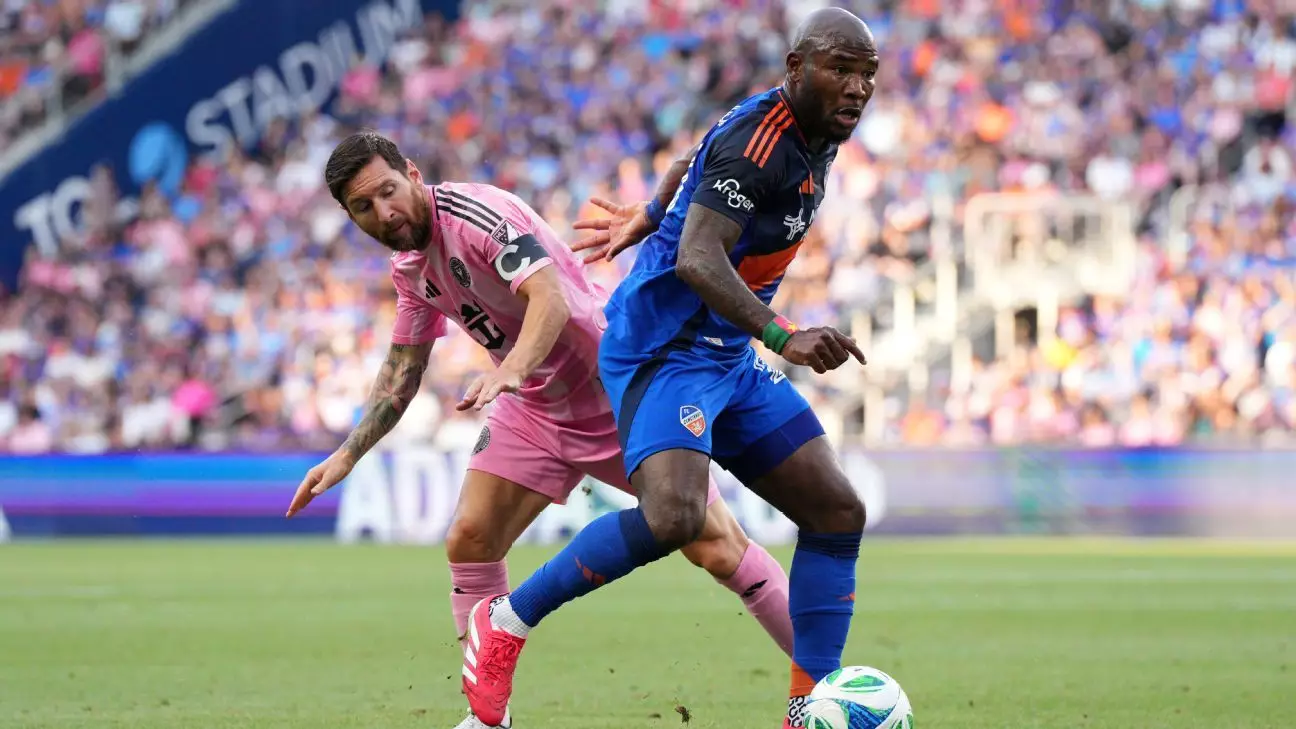In the modern football landscape, where the demands on players are relentless, even the most successful teams grapple with the challenge of balancing rest and competitive exposure. Inter Miami’s head coach, Javier Mascherano, highlights a crucial aspect of sports management—player well-being versus the allure of marquee events like the MLS All-Star Game. Although the league’s tradition emphasizes showcasing talent and generating fan excitement, Mascherano’s reservations expose an undercurrent of concern: are these extra games truly beneficial for players and the overall team health?
While fans and organizers celebrate the prestige of participating in such events, players like Lionel Messi and Jordi Alba might see it differently. Their participation, especially during a congested season, risks fatigue and injury, compromising their performance in crucial league matches. In an era where sports science advocates for strategic rest, Mascherano’s stance underscores a critical philosophy: longevity and consistency often trump short-term recognition. The debate arises from traditional notions of pride and exposure versus a modern emphasis on sustainable performance, revealing how coaching philosophies influence club decisions.
Injuries: The Hidden Cost of Intensity
The physical toll of an aggressive schedule becomes evident when examining Inter Miami’s injury struggles, particularly highlighted by goalkeeper Oscar Ustari’s recent knock. Mascherano’s acknowledgment of the “muscle injuries all season” hints at an underlying issue—overexertion. This is symptomatic of a broader problem facing many clubs operating in multiple competitions without sufficient rotation or rest periods.
The coach’s concern is well-founded; injuries can be devastating, both short-term and long-term, and they tend to compound if preventive measures aren’t prioritized. This raises a question about the club’s approach to player management: Is the current schedule sustainable? Are adequate measures in place to monitor load and prevent injuries? Mascherano’s cautious tone exposes a leadership that is aware of the risks but constrained by the demands of maintaining competitive momentum. It also spotlights a critical need for clubs to adopt more sophisticated player health protocols, balancing high-intensity schedules with recovery strategies.
Strategic Preparation for Future Tournaments
As Inter Miami gears up for the Leagues Cup against Atlas, strategic planning becomes even more vital. The club’s upcoming fixtures will test the depth of their squad and their management acumen. Efficient rotation, targeted recovery sessions, and injury prevention will determine whether the team can sustain their performance levels.
Furthermore, Mascherano’s comments hint at a broader philosophical shift within the club—prioritizing long-term health over short-term fame. While the allure of showcasing stars like Messi remains strong, there is a burgeoning understanding that true success lies in building a resilient team capable of competing across multiple competitions without succumbing to burnout or injuries. The focus shouldn’t merely be on winning individual matches or collecting accolades but cultivating a sustainable, formidable team that can adapt and thrive.
In essence, Inter Miami’s current situation is a microcosm of broader challenges in modern football—finding the delicate equilibrium between competition, player health, and long-term growth. As the team evolves, so must their approach to scheduling, training, and strategic planning. Only then can they truly unlock their potential and set a new standard for excellence in MLS and beyond.

